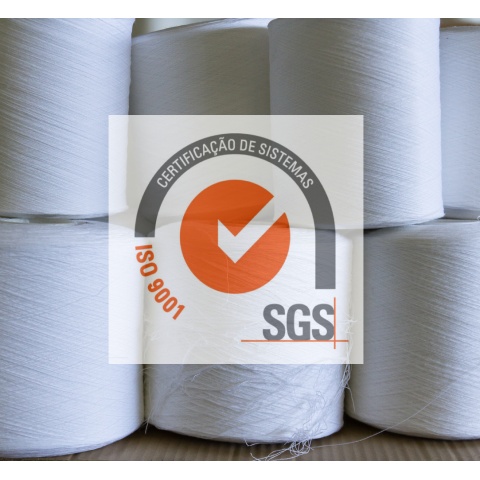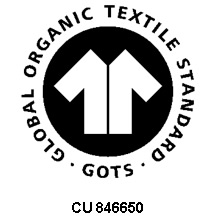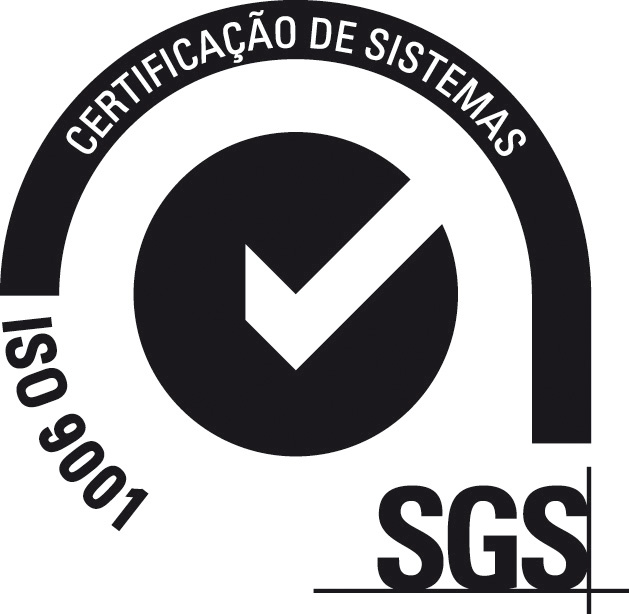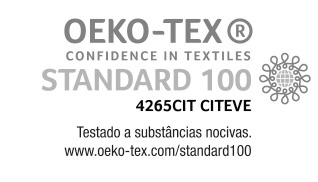
Atualização da Certificação na Piubelle
2020-12-22
2016-06-06
Fale-nos um pouco sobre as suas origens.
As nossas origens são transmontadas: eu e a minha esposa somos de Trás-os-Montes, estudamos em Bragança e depois viemos para o Porto onde frequentamos a Faculdade.
Mais tarde emigramos para o Brasil – estive duas vezes no Brasil: antes da revolução e depois da Revolução do 25 de Abril. Acreditámos que o Brasil nos poderia trazer um futuro mais próspero naquela altura. Portugal atravessava uma fase difícil na Pós-Revolução – não existiam muitas perspectivas de carreira e futuro para os jovens e, por esse motivo, decidimos regressar ao Brasil.
Foi no Brasil onde iniciámos a nossa “vida” no sector Têxtil, por “obra do destino”. A nossa formação é completamente diferente: a minha esposa é Educadora de Infância e eu sou de Economia mas por influência familiar – o meu cunhado já estava no Brasil nessa altura com uma empresa têxtil -, acabamos por entrar na indústria têxtil com a criação de uma fábrica de lingerie de noite e lingerie de senhora.
Como surgiu a ideia de criar a empresa em Portugal?
Em 1981, embora a empresa no Brasil estivesse em franca expansão e crescimento, decidimos voltar à Europa e a Portugal .
Esta decisão deveu-se, principalmente, devido à redução da segurança dentro do País – que havia sido um País de regime militar até então – , da poluição provocada pela indústria Siderúrgica e dos automóveis no estado de S. Paulo; também não víamos o Brasil como um país para constituir família - já tínhamos um filho de 3 anos que nasceu no Brasil – e lá, no Brasil, não passaríamos de emigrantes, “patrícios”. Por outro lado, percebemos que existia uma grande apetência no mercado Português pelos produtos que fabricávamos no Brasil: essencialmente os lençóis plissados, os quais já eram vendidos em Lisboa aos milhares, através de amigos e familiares que nos visitavam no Brasil e traziam os produtos para Portugal.
Em suma, a decisão de voltar a Portugal e criar a Piubelle deveu-se a 3 fatores: desejo de regressar às origens, oportunidade de negócio com a produção e venda do Têxtil Lar em Portugal e ainda, a abertura das fronteiras Portuguesas à Comunidade Europeia.
Porquê o têxtil-lar?
Já depois de 6 anos a fabricar lingerie e lençóis no Brasil, identificámos que existia procura pelos nossos produtos em Portugal: os nossos lençóis plissados eram vendidos aos milhares em Lisboa através dos vendedores ambulantes, amigos e familiares que nos visitavam. Em vez de exportar do Brasil decidimos fabricá-los em Portugal.
Em Portugal começamos por fabricar os Têxteis Lar – onde se incluíam os lençóis plissados – e o Lingerie de senhora. No entanto, no mercado Português não existiu tanta aceitação pelos produtos de Lingerie como no mercado Brasileiro; nessa altura focámo-nos apenas na produção dos Têxteis Lar, atividade à qual nos dedicamos hà 35 anos. O lençol plissado é, igualmente, um produto procurado no mercado Português, ainda hoje.
Qual a origem do nome Piubelle?
Piubelle é o nome nasce que da vontade de desenvolver uma marca europeia, de fácil pronunciação, numa conjugação do Italiano com o Francês. Criámos a marca própria, Piubelle , antes ainda de produzirmos produtos para terceiros. Acreditámos que o sucesso da empresa também se deve ao foco na marca própria porque nos permitiu distinguirmo-nos no mercado dos Têxteis Lar. Nas feiras questionavam –nos se a empresa era Italiana, pela aproximação do nome da marca ao Italiano.
Qual a data de criação da empresa?
Viemos a Portugal em Dezembro de 1980, após uma visita do Sr. Presidente da República Ramalho Eanes, o qual esteve com os empresários em S. Paulo e nos deu incentivo para voltarmos para Portugal – fomos informados de que a adesão à UE iria dar-se rapidamente. Esta seria uma oportunidade de abertura de novas estradas e infraestruturas em Portugal: iria abrir-se à Europa e modernizar-se.
Quando, em Junho de 1981 chegamos a Portugal, já tínhamos a sociedade constituída, armazém alugado e maquinaria comprada para dar início à produção. Embora tenhamos iniciado atividade em Rio Tinto, foi no concelho da Maia que se deu o maior crescimento da empresa. Esta localização é, ainda hoje, estratégica para a Piubelle: a aproximação do aeroporto e acessos facilitados, permitiu-nos crescer, de acordo com os planos que nos foram apresentados na proposta de desenvolvimento do Concelho.
Quais foram os primeiros funcionários da empresa além dos donos?
No inicio da empresa tínhamos cerca de 8 funcionários; 4, permanecem há 35 anos de empresa. Este foi o primeiro emprego destes 4 funcionários que esperamos que se mantenham na empresa até há sua reforma.
Quais as grandes “vitórias” da Piubelle?
De 1981, data de criação da empresa em Portugal, até aos dias de hoje, foram muitos os marcos históricos: o primeiro cliente Internacional, na Holanda; o primeiro evento fora de território Nacional em Madrid; as vitórias e desafios de clientes que confiam na empresa à 35 anos.
As centenas de feiras onde as coleções Piubelle tem estado presente e o enorme esforço e dedicação comercial fazem com que a exportação de produtos, represente hoje 92% da produção.
Além de marca própria, a Piubelle produz para outras marcas de renome Internacional. Grandes cadeias e designers de moda procuram a Piubelle para desenvolver produtos para as suas marcas. O legado da marca Piubelle está hoje espalhado por todo o Mundo: 50% das vendas são representadas pela marca, presente nos Estados Unidos da América, Chile, Argentina, México, Estados Unidos, Canadá, Espanha, Irlanda, Roménia, Inglaterra, Polónia, Alemanha, Austrália, Nova Zelândia, Coreia do Sul e China.
Qual o processo produtivo da Piubelle?
É a partir das necessidades dos nossos clientes e consumidores que os produtos Piubelle se desenvolvem. Desde cedo que nos posicionamos de forma diferenciadora: somos especialistas em têxteis-lar. Controlamos todo o processo produtivo e cadeia de valor. Procuramos o melhor algodão, controlamos a produção do fio e produzimos os tecidos – Jacquard ou lisos -, somos exigentes na confecção e acabamentos, até à distribuição dos produtos Piubelle. Contamos, não só com a nossa vasta experiência, mas também com a de mais de 35 parceiros que, diariamente, contribuem para o nosso sucesso.
Hoje, para além de ser uma empresa absolutamente vertical, a Piubelle dispõe de parceiros exclusivos, que dão flexibilidade à oferta de produtos e serviços da empresa. Permite-nos uma maior rapidez e eficiência na resposta comercial e como resposta ao crescente aumento de vendas da empresa e da marca.
Estamos em constante atualização de produtos; reconhecemos a importância do factor novidade no retalho. Inicialmente fazíamos programações a um ano; hoje as nossas programações são mais curtas, ajustadas a prazos de entrega curtos, reposições rápidas e procura constante por produtos novos.
Qual o maior desafio que viveu na empresa?
Sem dúvida que a necessidade de estar preparado para ser um verdadeiro parceiro dos clientes. Temos de ser capazes de apoiar quer os clientes mais informados, quer aos que cresceram com as suas marcas, através do conhecimento e competência técnica da Piubelle.
Esta necessidade surge de uma história engraçada: um cliente em particular, muito bem informado, fez-me perguntas muito pertinentes, as quais eu não sabia responder.
A partir desse momento, assegurei-me que isto nunca voltaria a acontecer, e que o conhecimento sobre o produto, matérias-primas e suas componentes, seria um fator distintivo, quer na abordagem comercial quer na produtiva.
Esta competência destacou-se, igualmente, e nos momentos de conjuntura económica mais difícil - como a abertura do mercado chinês -, e permitiu que a Piubelle se mantivesse bem-sucedida!
O que mudou nesta indústria os últimos 20 anos e como a Piubelle se adaptou às mudanças?
Os clientes sempre foram os grandes embaixadores quer na avaliação, quer na divulgação da marca e empresa. Os consumidores hoje e sempre ditam o ritmo do comércio e da indústria.
Antes do 25 de Abril, a procura era maior que a oferta a nível mundial – existia um consumo equilibrado. Nos últimos anos, o excesso de produção levou a que a oferta fosse maior e existisse uma maior oportunidades de escolha.
Neste sentido, a Piubelle possui uma capacidade de resposta, muito ajustada ao pedido e diversidade de produtos é um dos fatores de maior sucesso da Piubelle.
Piubelle está habituada a responder “just in time” através do grupo de empresas com o qual trabalha em parceria: possuímos diversidade de equipamentos, somos capazes de produzir uma grande diversidade de diversidade de produtos e isso distingue-nos no mercado.
Quais os valores que identifica na empresa?
a. Relações Humanas: com clientes e com os funcionários. Somos todos parte da família Piubelle; temos como foco que todos os nossos funcionários sintam que a empresa faz parte do seu futuro.
b. Preocupação com o Meio Ambiente: na seleção de matérias primas, e produção. Desde o inicio da empresa que esta foi uma preocupação – consideramos essencial viver em harmonia com o meio ambiente: desde a produção das matérias primas à produção e distribuição dos produtos;
c. Excelência no Produto: desde a excelente qualidade dos produtos, relação preço/qualidade e diversidade da oferta. Os clientes comentam este equilíbrio - e procuram a Piubelle por este motivo.
Qual a sua visão para o futuro da Piubelle?
Prevejo que, no futuro, a nanotecnologia assuma um papel importante no desenvolvimento de produtos sustentáveis – amigos do meio ambiente -, visualmente estéticos e que contribuam para o bem-estar da pessoas, podendo serem usados sem qualquer restrição para a saúde humana.
Hoje tenho a certeza que vale a pena é um projeto bonito, uma história de vida engraçada, de família, com passado presente e futuro.




